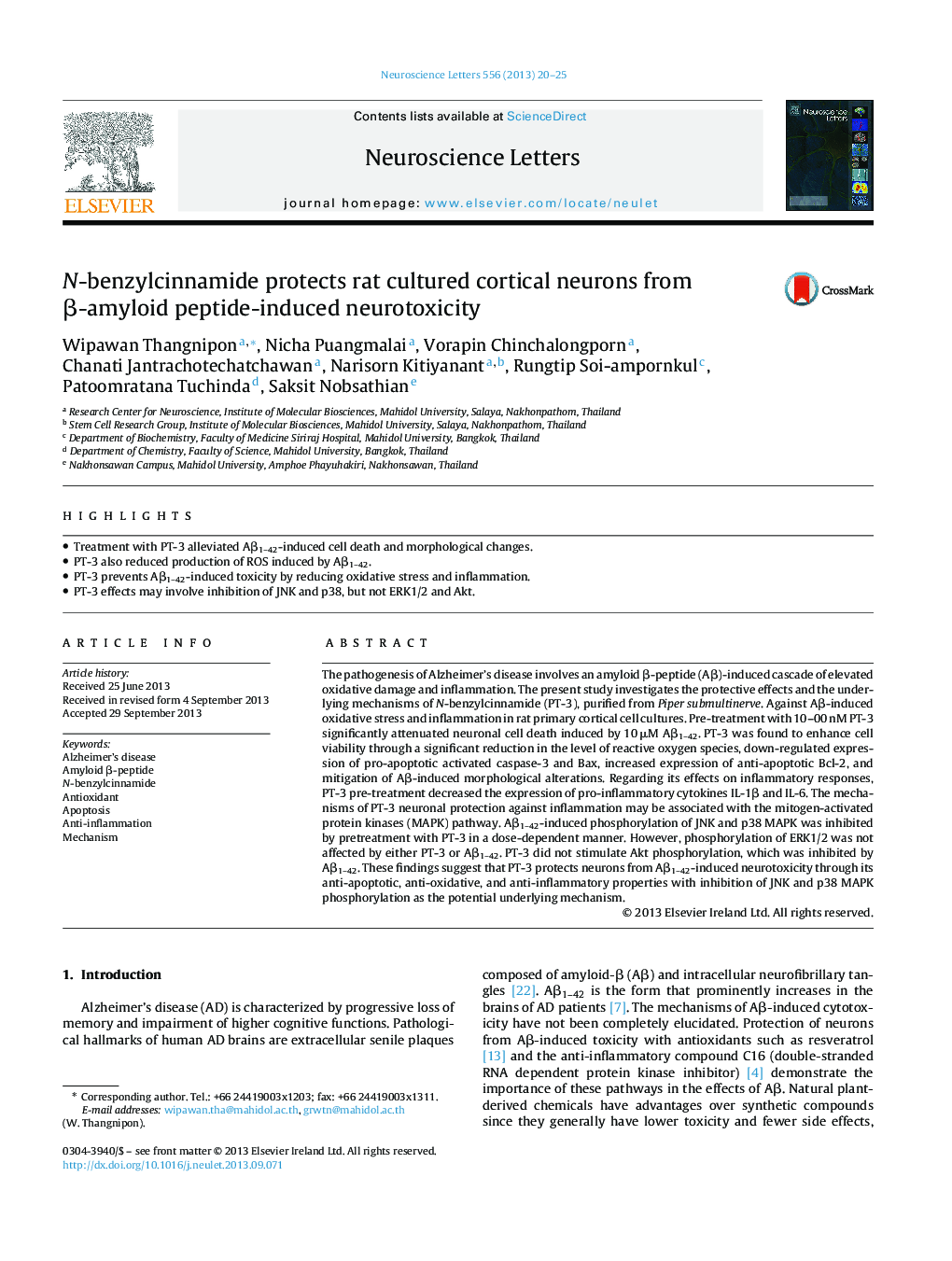| Article ID | Journal | Published Year | Pages | File Type |
|---|---|---|---|---|
| 6282523 | Neuroscience Letters | 2013 | 6 Pages |
Abstract
The pathogenesis of Alzheimer's disease involves an amyloid β-peptide (Aβ)-induced cascade of elevated oxidative damage and inflammation. The present study investigates the protective effects and the underlying mechanisms of N-benzylcinnamide (PT-3), purified from Piper submultinerve. Against Aβ-induced oxidative stress and inflammation in rat primary cortical cell cultures. Pre-treatment with 10-00 nM PT-3 significantly attenuated neuronal cell death induced by 10 μM Aβ1-42. PT-3 was found to enhance cell viability through a significant reduction in the level of reactive oxygen species, down-regulated expression of pro-apoptotic activated caspase-3 and Bax, increased expression of anti-apoptotic Bcl-2, and mitigation of Aβ-induced morphological alterations. Regarding its effects on inflammatory responses, PT-3 pre-treatment decreased the expression of pro-inflammatory cytokines IL-1β and IL-6. The mechanisms of PT-3 neuronal protection against inflammation may be associated with the mitogen-activated protein kinases (MAPK) pathway. Aβ1-42-induced phosphorylation of JNK and p38 MAPK was inhibited by pretreatment with PT-3 in a dose-dependent manner. However, phosphorylation of ERK1/2 was not affected by either PT-3 or Aβ1-42. PT-3 did not stimulate Akt phosphorylation, which was inhibited by Aβ1-42. These findings suggest that PT-3 protects neurons from Aβ1-42-induced neurotoxicity through its anti-apoptotic, anti-oxidative, and anti-inflammatory properties with inhibition of JNK and p38 MAPK phosphorylation as the potential underlying mechanism.
Related Topics
Life Sciences
Neuroscience
Neuroscience (General)
Authors
Wipawan Thangnipon, Nicha Puangmalai, Vorapin Chinchalongporn, Chanati Jantrachotechatchawan, Narisorn Kitiyanant, Rungtip Soi-ampornkul, Patoomratana Tuchinda, Saksit Nobsathian,
